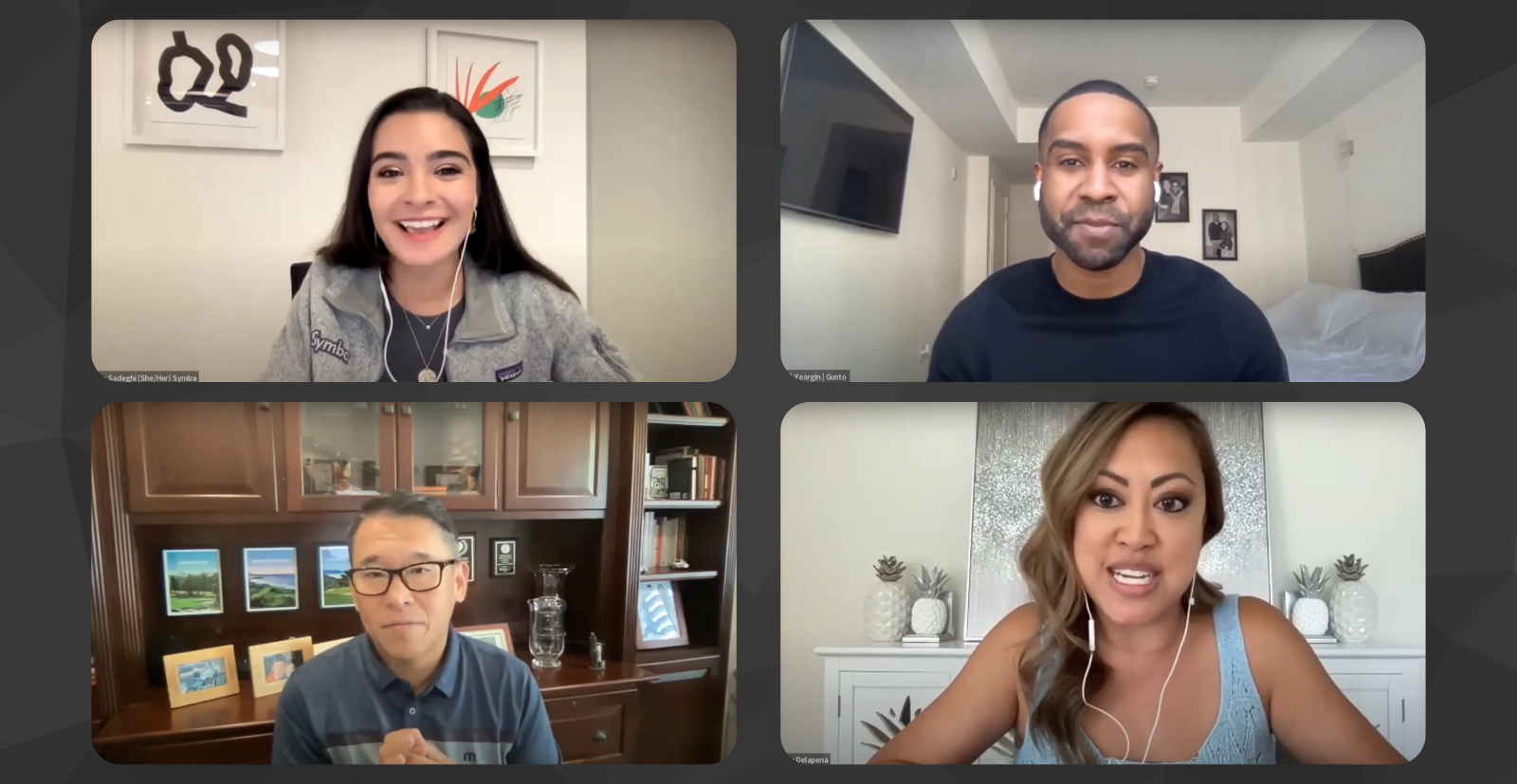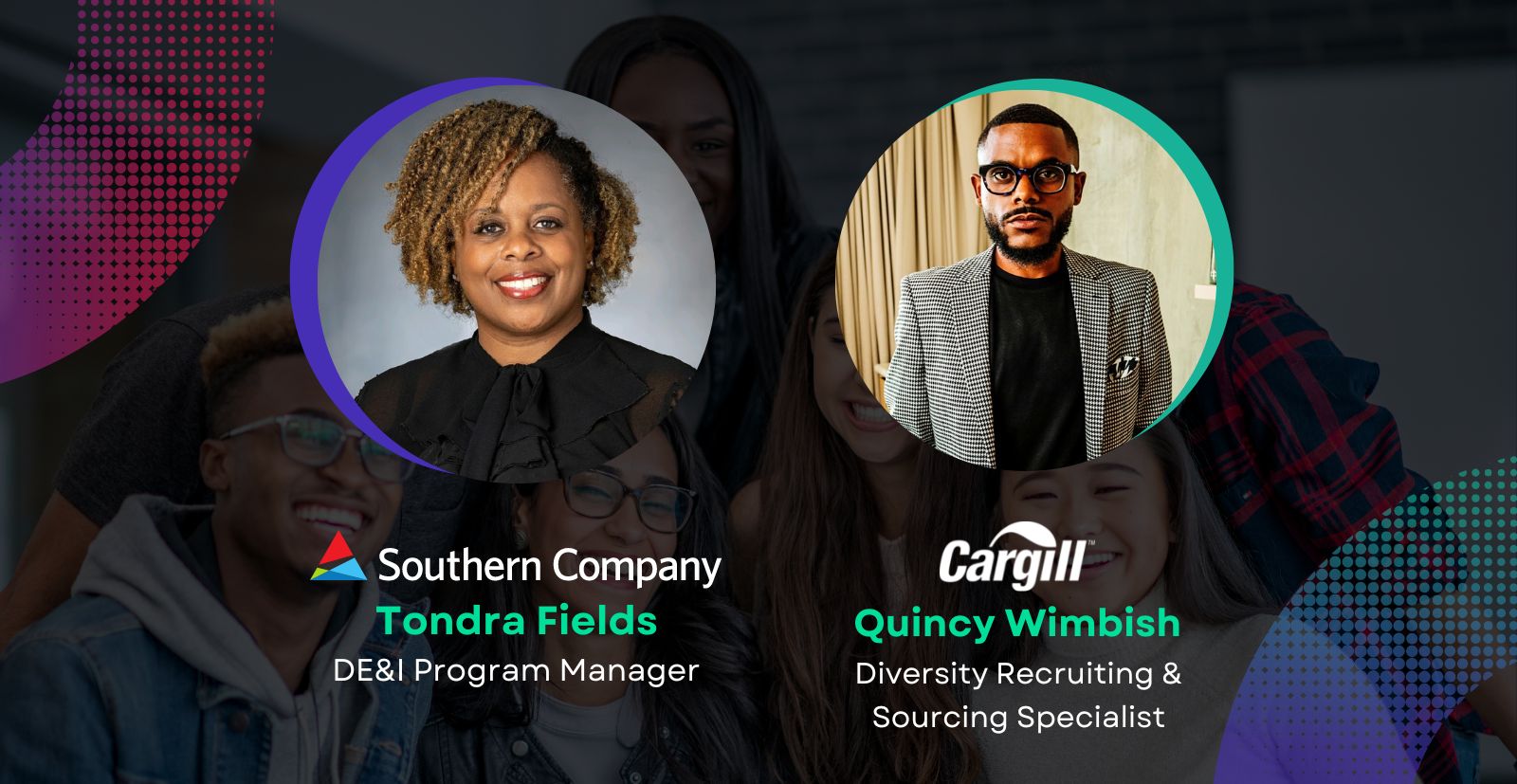Many companies, particular in tech, are scaling back their hiring plans and reducing staff in order to combat economic uncertainty stemming from inflation, rising interest rates, and the pandemic. Unfortunately, companies tend to also cut down their early talent budgets and cancel their internship programs.
In such times, how can you convince your Head of Talent and leadership team to continue supporting your early talent program, regardless of the economic climate? We co-hosted a URx Roundtable to help you do just that! The panel featured Richard Cho, Chief Recruiting Officer at Gem, and Emil Yeargin, VP of Talent at Gusto, who shared their knowledge and expertise on how to sustain buy-in for early talent programs and think long term about growing talent pools.
If you missed the event, don’t worry! Here are 5 key takeaways:
Takeaway #1: Align your program to the company and business objectives.
When building your early talent program, think about “what problem are we solving” in terms of the broader strategy of the company. It is important that internships are not siloed, that they feed into everything the company is doing and align with the overall goals.
If your early talent program is not aligned with overall company goals, it may be time to take a step back and understand what the key objectives of your company are. When your programs make a resonant impact throughout your organization, getting or sustaining buy-in for them becomes easier!
Takeaway #2: Make sure you are tracking key metrics to articulate the program’s value.
“Keep fighting the good fight” - Emil Yeargin, VP of Talent at Gusto.
It is crucial to know how your program is performing, and how it can improve. When senior executives begin to question your program, you can point to all the qualitative and quantitative metrics that articulate your program’s value. To achieve this, focus on goal setting and segmenting your strategies. Some metrics to track include:
- ROI: What are you spending and what are you getting back in return? This can include retention rates, conversion rates, NPS scores, etc.
- Cost per hire (intern versus non-intern)
- DEI metrics arising from early talent programs versus hiring otherwise
- Experiential program scores: What are managers saying, and what are interns saying about the program experience?
Tracking these high level metrics will bring a more resonant message and lead to faster/ easier buy-in for your program.
Takeaway #3: Think long-term, the market always bounces back after downturns.
During an economic downturn, fear drives companies to reduce headcount forecasts to ensure financial runway for the company. In most cases, early talent teams and programs are the first to be on the chopping block. While most companies opt for short-term management of such problems, early talent programs require more long-term thinking. Educating your executives on this ‘bigger picture thinking’ can help you make a better case for sustaining early talent programs. Emil Yeargin also shared that companies could think of reducing their internship program duration and cohort size to be conservative with the budget instead of completely canceling it.
Richard Cho also shared that instead of reducing the UR team’s headcount, their time can be utilized to:
- Evaluate the systems your company has in place, especially for HR data collection.
- Spend time upleveling your own skills. Think about why the company is doing what it is doing and how you can contribute further.
- Invest in your ‘talent brand’ so you can attract top quality candidates when the market becomes competitive again.
Takeaway #4: Set up recurring meetings with program champions and any other key stakeholders.
Give regular updates about your program and its achievements, big or small, to key stakeholders including HRBPs, the finance team which holds the key to your program’s budget, CHROs, and any other key stakeholders who can help sustain the program in case of a potential cut-down. Hold meetings with each of these stakeholders on a regular basis to keep them engaged and involved in the program.
Takeaway #5: Show off your talent!
Did you know intern conversions tend to stay longer, are more engaged, and perform better than their peers? They already know the company culture, the organizational needs and goals, and have been trained to align their work with the company because they began in early talent programs.
These programs do priceless work for the company and the world, and you need to show this work off!
- Tell senior leaders the work your talent has done.
- Celebrate victories, big and small.
- Give your talent the credit they deserve.
You can begin executing retention strategies before your talent even joins the company by reaching out to them the moment they are offered a position. Keep them warm before they even begin to ease the onboarding process and encourage engagement. Early talent programs are a pipeline to full-time employees and need to be prioritized.
Loved these takeaways? Watch the full session here.





